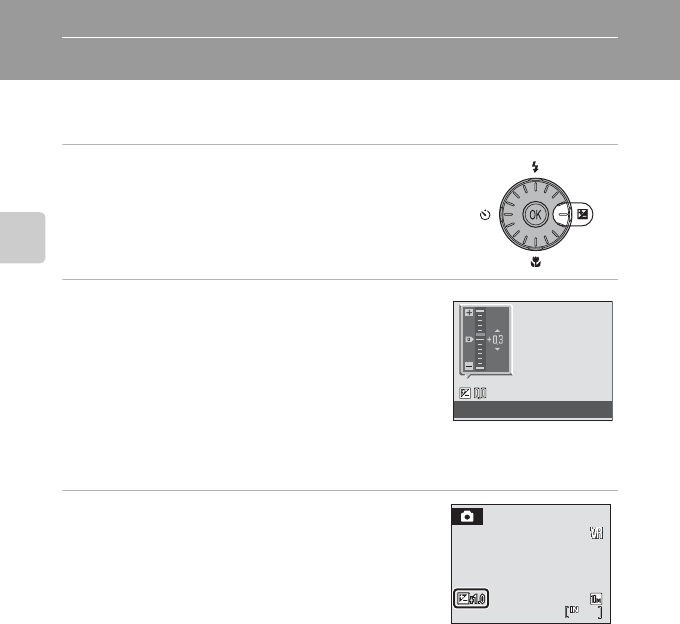
32
Basic Photography and Playback: Auto Mode
Exposure Compensation
Exposure compensation is used to alter exposure from the value suggested by the
camera to make pictures brighter or darker.
1 Press the rotary multi selector o (exposure
compensation).
The exposure compensation guide is displayed.
2 Use the rotary multi selector to adjust
exposure.
• When the picture is too dark: adjust the exposure
compensation to “+” side.
• When the picture is too bright: adjust the exposure
compensation to “-” side.
• Exposure compensation can be set to values between
-2.0 and +2.0 EV.
• If a setting is not applied by pressing k within a few seconds, the selection will be
cancelled.
3 The setting is applied.
• The H icon is displayed in the monitor.
C Exposure Compensation Value
When exposure compensation is adjusted in a scene mode, the setting is only enabled until another
shooting mode is selected or the camera is turned off. Switching to another shooting mode or
turning the camera off returns exposure compensation to 0.0.
D Using Exposure Compensation
The camera tends to lower exposure when the frame is dominated by brightly lit objects and to
increase exposure when the frame is mostly dark. Positive compensation may therefore be required
to capture the brilliancy of very bright objects that fill the frame (for example, sunlit expanses of
water, sand, or snow) or when the background is much brighter than the main subject. Negative
compensation may be called for when large areas of the frame contain very dark objects (for
example, a swath of dark green leaves) or when the background is much darker than the main
subject.
Exposure compensation
16
16
16


















